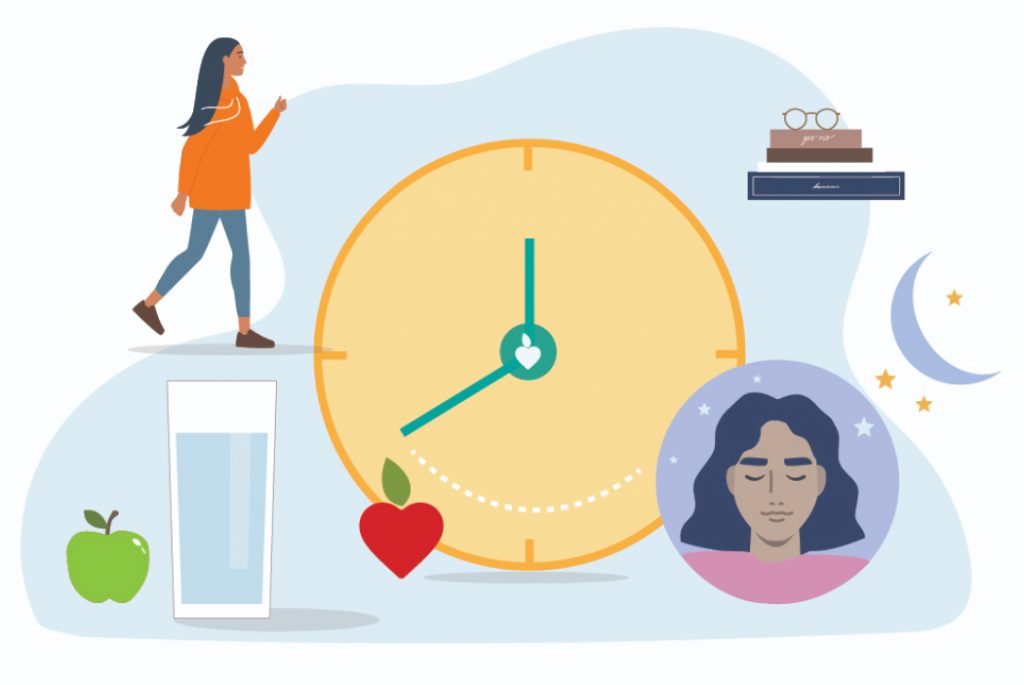Welcome to Well-being Challenge #3!

Choose one of the following ways to improve your physical
well-being:
Add 20 minutes of physical activity to each day.
There are a lot of small changes you can make in your day to add some activity. Take the stairs instead of the escalator. Park farther away from your destination. Have walking meetings at work or catch-up walks with friends. Do push-ups and squats while you’re watching TV
Every minute you move more and sit less adds up. By being physically active, you reduce your risk for disease, strengthen your bones and muscles, keep your thinking skills sharp, and even improve your life expectancy. Try to build up to a total of 150 minutes or more of moderate-intensity activity per week. Once you start looking for ways to add more activity to your day, you’ll find it easier to keep going.
Drink a glass of water when you first wake up.
Staying hydrated has loads of benefits. It improves your concentration, memory and mood. It aids digestion and boosts energy. It keeps your joints lubricated so you can move more freely. It can even reduce your chance of developing kidney stones.
Did you know you can lose water breathing and perspiring as you sleep? Starting your day with a glass of water helps hydrate your body in the morning. It also jump-starts your daily intake. Conventional wisdom suggests drinking at least eight glasses of water per day. But people have different hydration needs, so check with your doctor to see what’s right for you.
Set a bedtime that’s early enough to get 7 hours of sleep.
Getting enough sleep on a regular basis can be challenging, especially if you work the night shift or an irregular schedule. But it’s important not getting enough sleep can increase your risk for many diseases and disorders, such as heart disease, stroke and dementia.
Fortunately, there are things you can do to improve your sleep starting with setting a consistent bedtime. Most smartphones have a sleep mode feature you can use to set a bedtime that will help you meet your sleep goal. Your phone will notify you when it’s time to go to bed, and it will be silent until your wake-up alarm.
If you don’t have a smartphone, you can use a kitchen timer or other device. Make sure you go to bed once you get the bedtime signal. With practice, you can make it a habit.

